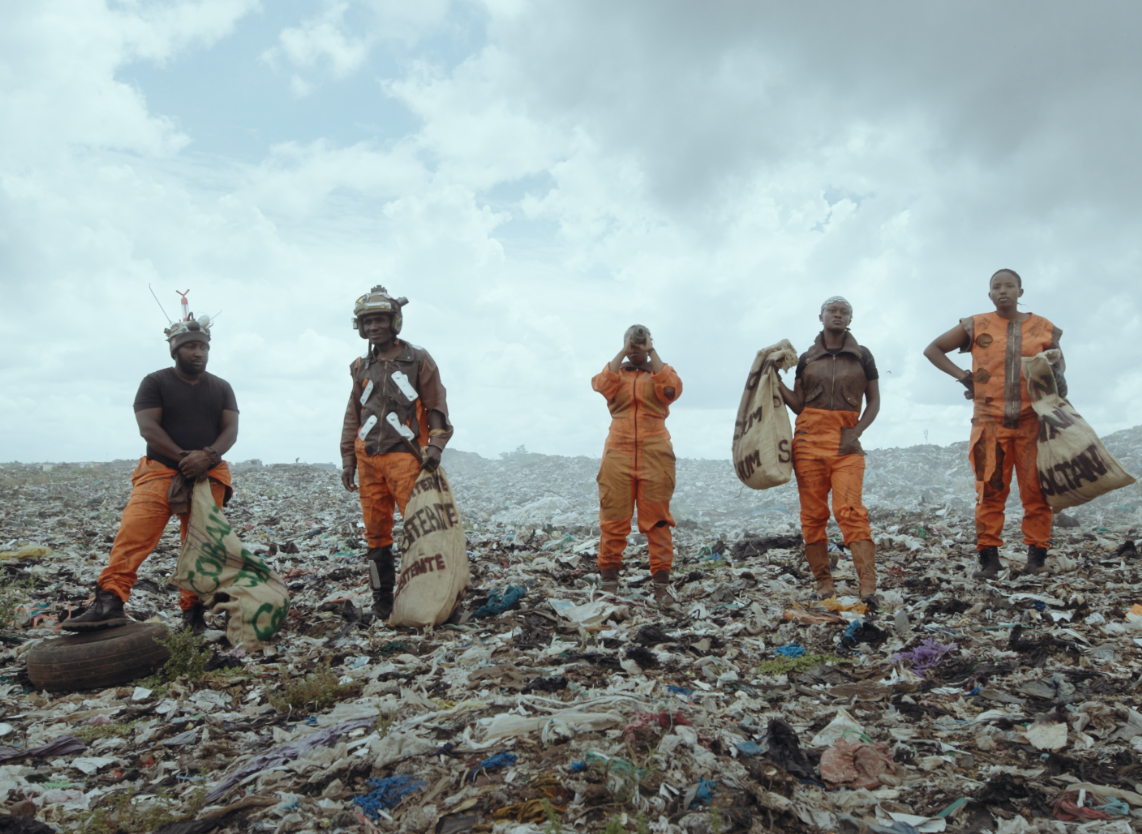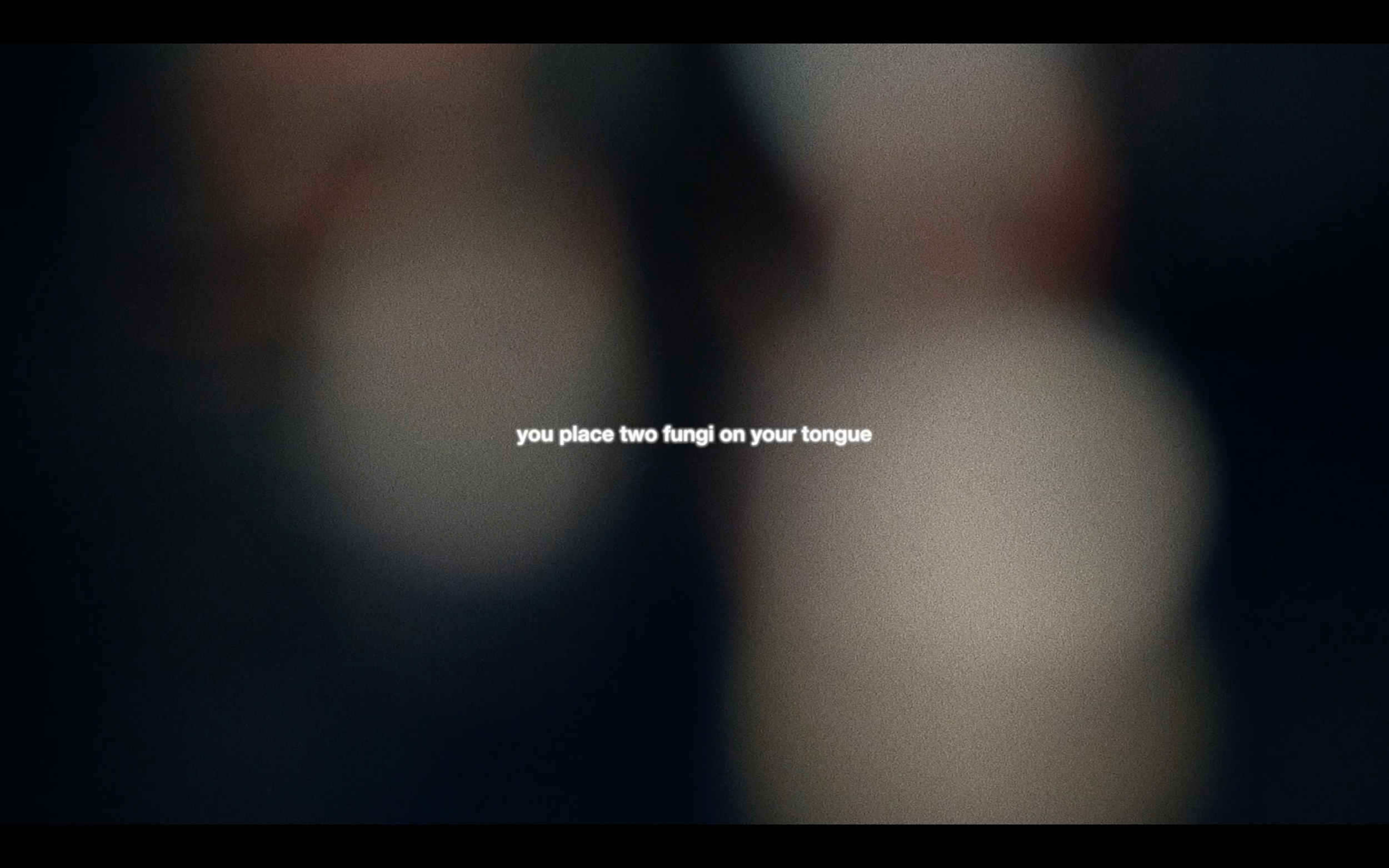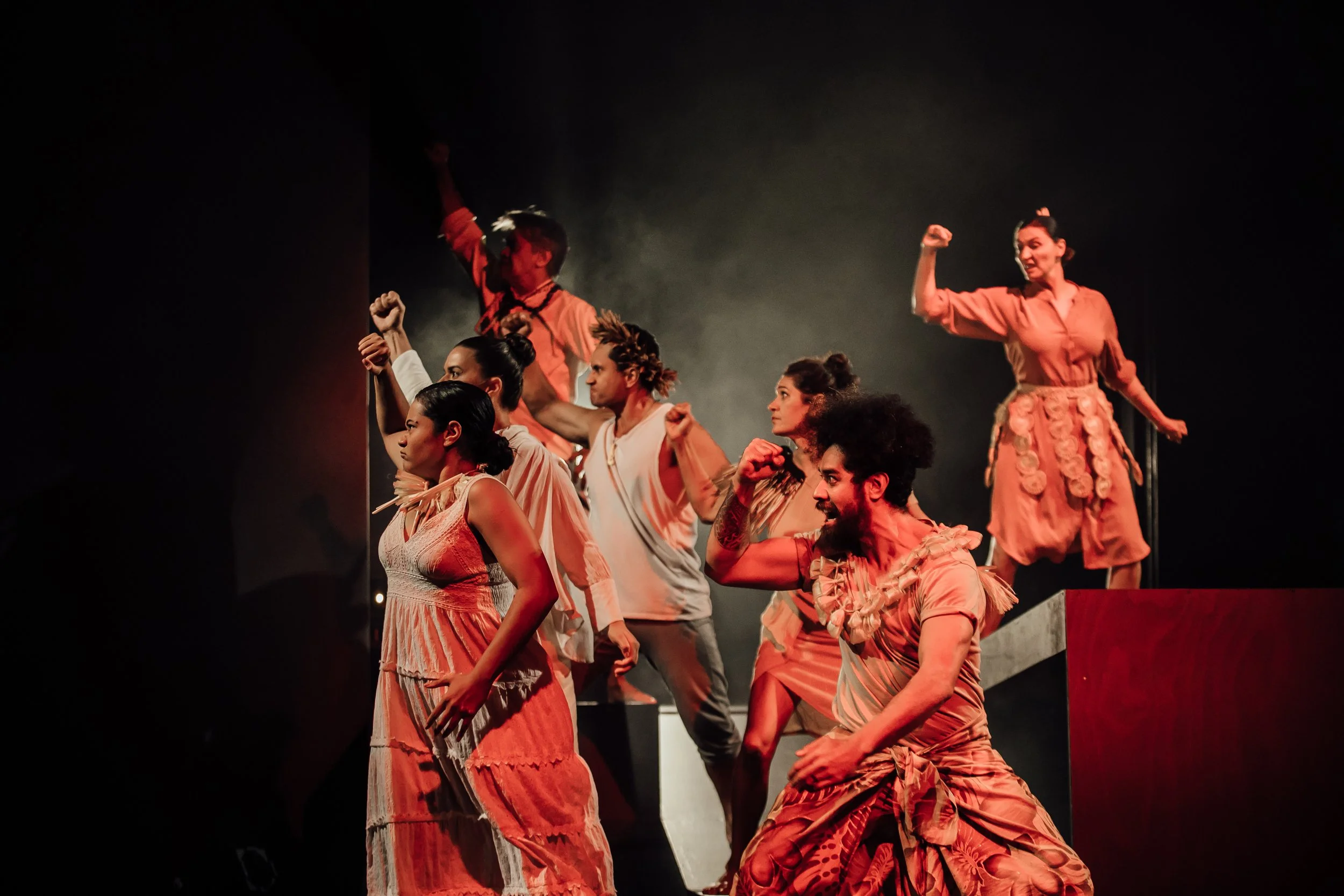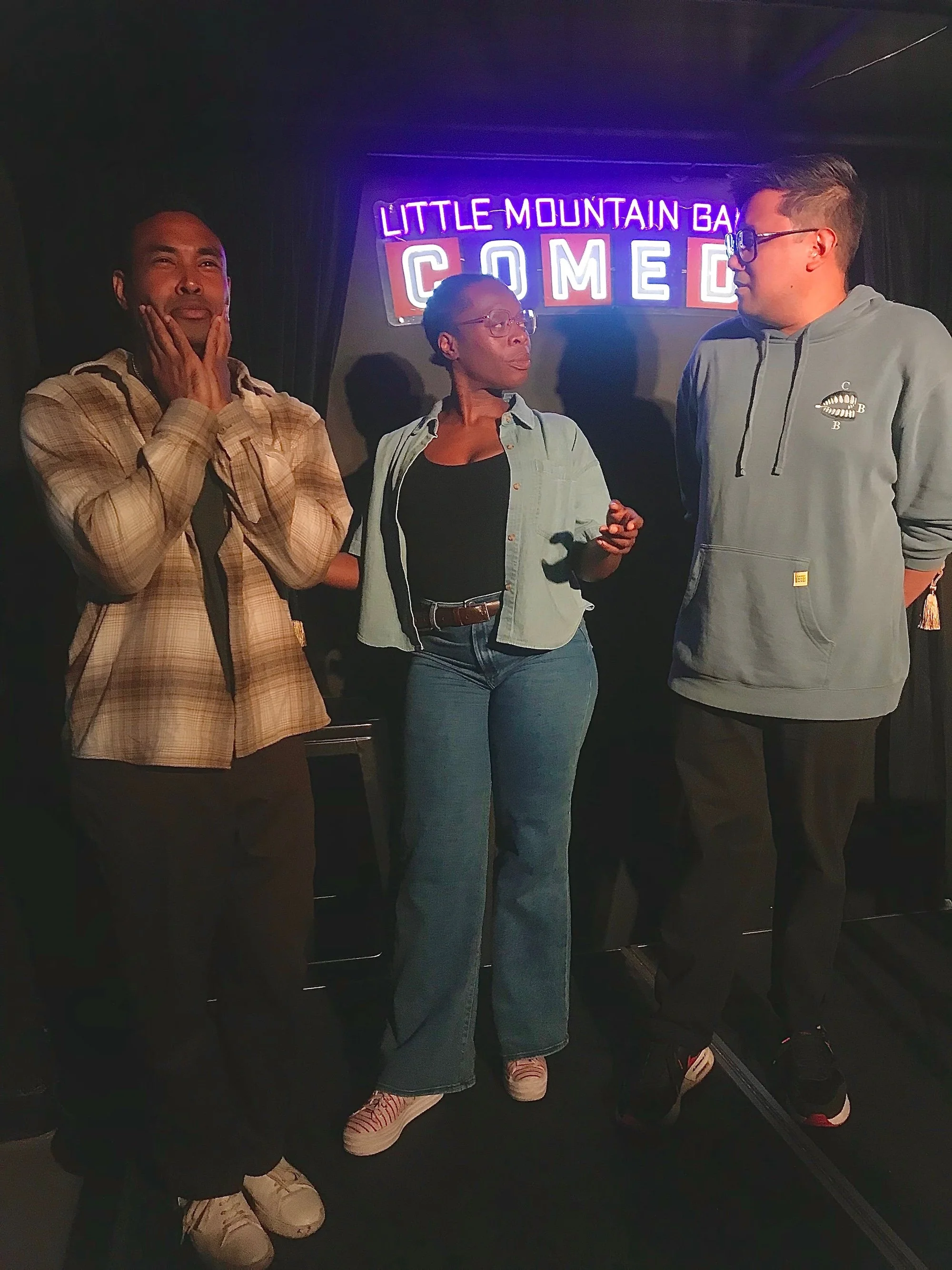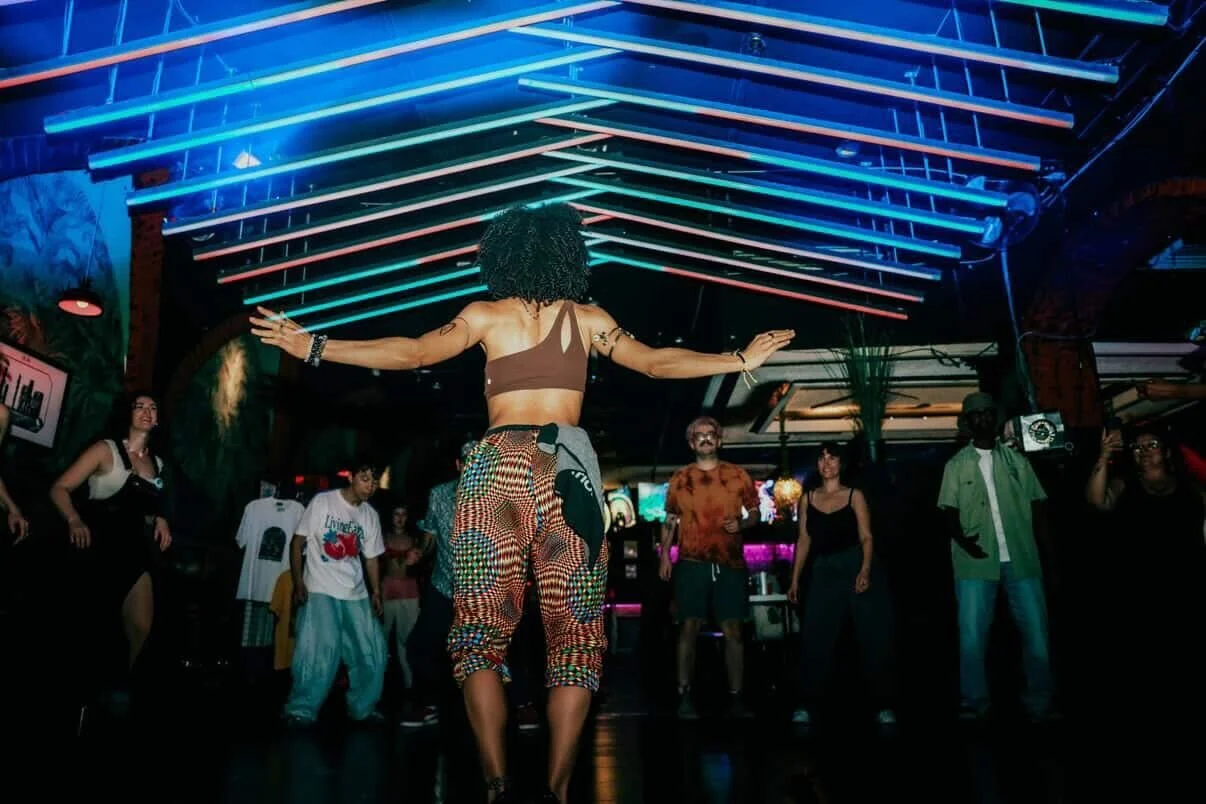Our World As We See It: VIFF Modes 1 Review
/Mother Land (dir. Kantarama Gahigiri, 2023)
You’ve probably heard that life imitates art. Well, when art imitates life, it’s mimesis. The term is a philosophical position that understands art as constantly imitating the world around itself. It’s difficult to separate art from the world's current affairs, and with all that's going on in the world, it’s becoming almost impossible to do so.
The Vancouver International Film Festival (VIFF)’s collection of short experimental films, MODES 1, exhibits mimesis through its intersection of the natural world, technology, and ongoing colonisation. Through various short films, the collection reflects on worlds, cities, and people, as they change over time.
Mother Land (dir. Kantarama Gahigiri, 2023)
In Kantarama Gahigiri’s Mother Land, we find our lead, a waste-covered woman, surrounded by endless mountains of rubbish, plastic, and rare earth elements. She stands confidently, like a goddess amongst technological waste, with an angry appeal to the world to take responsibility for the consequences of capitalism, colonialism, and environmental destruction in Africa. The ten minute short film continues with socially critical voice-overs and slow motion sequences of riots within a landfill. In one 30-second sequence, the narrator sings of “equality, autonomy,” and how “these cannot be without justice and action.” The voice-over begins to list rare earth minerals, such as cobalt and coltan, which are uncoincidentally minerals found in the unethical sourcing of raw materials for the production of mass-produced technology in the West, such as Apple products. Meanwhile, lingering shots of characters staring directly at the camera stir a certain discomfort through the intimacy of the frames, drawing a proximity between the landfill and viewers. Speaking almost as a translator for mother earth herself, the voice-over calls our attention to the remnants of colonial destruction and the ethical issues of the mining industry; she demands viewers and consumers to put “land first” and to put an end to high technologies, transhumanism and hyperglobalisation in a narration that directly links issues of colonialism, capitalism, and climate change to all our futures.
SQUARE THE CIRCLE (dir. Hannah Hovitie, 2023)
Hannah Hovitie’s Square the Circle explores how worlds, cities, and people change over time through a character who navigates her existence in the world by looking at life through multiple dimensions. The 17-minute long short film is an experimental video installation that combines 360 degree video and digital animation around one person's quest to find their place on this planet. It is an attempt to look into infinity, accept the perpetual passing of time, survive a long dark winter in the Northern Hemisphere, and find one's own place when one doesn’t quite fit in.
Hovitie intentionally frames the film as a circle, instead of a conventional filmic rectangle, as she takes us on a journey of an individual navigating through the time and space of a non-linear landscape, through night and day, winter and sunshine. The film destabilises perceptions of time and space as two co-existing, linear concepts; it explores the different levels of two dimensional space, three dimensional space, four dimensional space, and even zero dimensional space, and their relation to time– forcing you to question your relationship with seemingly definitive concepts like space and time themselves. “Time. It seems to be the only thing we have, and yet there’s never enough of it,” the narrator reflects in an effort to sum the film's theme.
By diving into the different dimensions of a circle, the work explores how to be a circle in a world of squares, how this simple shape might explain the entire universe at the same time as the nature of an individual person. Through both its content and shape, the circular work challenges the traditional angular frames of moving images, whether it be a screen or all the possible boxes in which we humans are placed.
this is not here (dir. charlotte mungomery, 2022)
In Charlotte Mungomery This is Not Here, two pedestal fans converse with one another, creating intimacy within the inanimate. Soon after, we enter the depths of the Peruvian Amazon and immediately dive into a dreamlike universe, guided by the sounds of Peru and accompanying text on screen. With a shallow depth of field and a slow pan into the jungle, we are escorted further into the jungle through short, poetic writing: “You meet a woman who sells eggs in the market. You wake for three days, you step into the same river twice, you dream about sleep. You watch everything turn into art.”
With limited visuals on screen, the text takes centrefold momentarily. The written dialogue works to decolonise what might be considered ordinary life. As the film is situated in the Amazon, it focuses on the simplicity of the everyday and steers towards humanity's connection to the natural world, as opposed to technology or the capitalistic mindset. Through the sounds of the rainforest and feelings of nostalgia, we experience a film that has more to offer through its non-visuals and ambient sounds, as opposed to exposition or voice-over; we discover that we can explore beyond what we see.
this is not here (dir. charlotte mungomery, 2022)
This simultaneously erotic and gloomy meditation through the Peruvian Amazon–juxtaposed with the two pedestal fans and the split screen of a woman waking up in bed– is a tangential contemplation on the processes, experiences, and absurdities of urban life. This is Not Here opens up infinite possibilities of ways of seeing and feeling the world by bringing out our senses and taking us to unknown places. This film was produced in the Amazon-based Apichatpong Weerasethakul Lab, made with the guidance of Weerasethakul himself, as noticeable through his influential dream-like style.
These films, along with four other experimental shorts are presented in the Vancouver International Film Festival screening Modes 1. They are available for viewing Saturday September 30th at 18:00 at Vancity Theatre and on Saturday October 7th at 16:15 at The Cinematheque. Tickets can be purchased at viff.org. For more information, visit here.
Tasheal Gill (she/her) is a film production student with a passion for storytelling through various artistic platforms. She is dedicated to uplifting BIPOC voices, and telling stories through a socially conscious lens. Follow her on Instagram (@tashealll).


